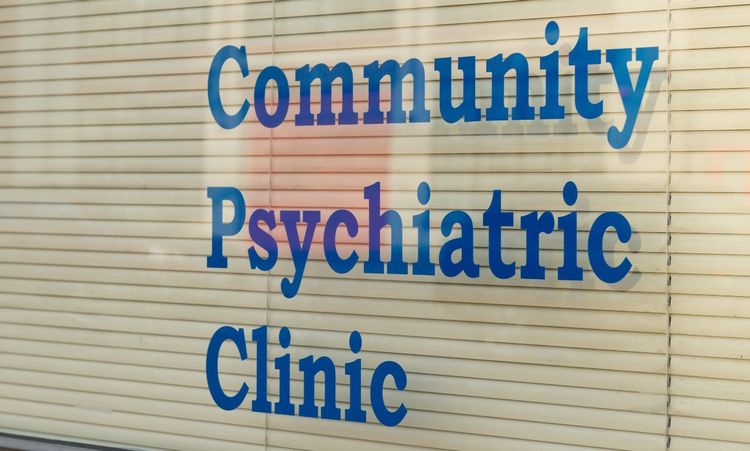Children experience depression too. Many parents miss the signs because childhood depression looks different from adult depression. Kids might not say they feel sad. They express their feelings through behavior instead. Spotting depression early matters for every child's well-being. Treatment works best when started early. This article explains what causes depression in kids and how to spot it. You'll learn about the warning signs and treatment options. Knowledge empowers parents to get proper help. Depression is treatable, and children can recover with support. Let's explore this important topic together.
What causes depression in children?
Depression rarely has a single cause. Multiple factors usually contribute to a child's mental health struggles. Knowing these factors helps parents understand what's happening. Let's look at the three main categories of causes.
Biological Causes
Brain chemistry plays a significant role in childhood depression. Some kids have differences in brain structure or function. These differences affect mood regulation. Genetics matter too. Children with family histories of depression face higher risks. The condition often runs in families. About 20-50% of depressed children have relatives with similar problems. Hormonal changes during puberty can trigger depression. Some medical conditions increase depression risk too. Chronic illness creates ongoing stress. Vitamin deficiencies, especially vitamin D, might contribute to mood problems. Sleep disorders disrupt brain chemistry balance. Each child's biological makeup is unique. These factors interact differently in every case.
Environmental Causes
A child's surroundings shape their mental health significantly. Stressful home environments increase depression risk. Constant fighting affects children deeply. Divorce or family breakdown creates uncertainty. Loss of a loved one causes grief that may develop into depression. Some children face bullying at school. This social rejection damages self-esteem. Academic pressure overwhelms sensitive kids. Traumatic experiences leave lasting impressions. Abuse or neglect increases depression risk substantially. Moving homes or changing schools disrupts stability. Poverty creates chronic stress. Media exposure affects how children view themselves. Comparing themselves to unrealistic standards hurts confidence. Even neighborhood safety impacts mental health. Children absorb the emotions around them.
Psychological Causes
A child's thinking patterns influence mental health outcomes. Some children develop negative thought patterns early. They blame themselves for problems beyond their control. Low self-esteem makes kids vulnerable to depression. Perfectionism creates impossible standards. These children feel constant disappointment. Some lack emotional regulation skills. They struggle to handle difficult feelings. Poor coping mechanisms worsen stress. Anxiety often accompanies depression. The conditions feed each other. Learning disabilities may damage self-confidence. Social skills difficulties lead to isolation. Children with attention disorders face frequent criticism. This affects how they see themselves. Temperament plays a role too. Some kids naturally experience emotions intensely. These psychological factors develop over time.
How can I help a child with depression?
Supporting a depressed child requires patience and understanding. Open conversations about feelings help tremendously. Listen without judgment. Take their concerns seriously. Never dismiss their feelings as "just a phase." Create daily routines for stability. Ensure plenty of sleep and regular meals. Encourage physical activity without pressure. Limit screen time sensibly. Spend quality time together doing enjoyable activities. Help identify their strengths and talents. Teach basic coping skills through example. Practice gratitude as a family. Connect with school counselors for additional support. Consider professional help when symptoms persist. Early intervention makes a difference.
7 signs of depression in children
Watch for these warning signs in children. They differ from typical childhood behavior by their persistence and intensity. Trust your instincts about changes in your child.
They Seem Angrier or More Irritable Than Usual
Children often express depression through irritability rather than sadness. A normally easy-going child might suddenly snap at small things. Tantrums may increase in older children who outgrew them years ago. Their frustration tolerance drops noticeably. They might overreact to minor problems. Siblings bear the brunt of this irritability. Parents feel like they're "walking on eggshells" around them. This irritability remains consistent, not occasional. It appears across multiple settings, not just at home. The behavior doesn't improve with normal discipline. Their anger often seems out of proportion to situations. The child struggles to explain why they feel so upset. This persistent irritability differs from typical mood swings.
They've Withdrawn From Friends and Their Favorite Activities
Social withdrawal signals potential depression in children. A formerly outgoing child might avoid playdates. They lose interest in once-loved activities. Sports equipment gathers dust in corners. Musical instruments sit untouched for weeks. Birthday party invitations receive unenthusiastic responses. They prefer solitude over family game nights. Playground time becomes sitting alone watching others. This withdrawal exceeds normal developmental shifts in interests. The child offers excuses to avoid social gatherings. "I don't feel like it" becomes their common refrain. They show little excitement about future events. Their world gradually shrinks. This pattern persists beyond temporary phases.
You've Noticed Changes in Their Appetite
Eating habits often change when children experience depression. Some kids lose interest in favorite foods. Others develop increased appetites, especially for comfort foods. Weight changes become noticeable over time. Some children forget meals entirely without reminders. Others eat constantly without feeling satisfied. Family meals become battlegrounds. The joy of eating disappears. They pick at their food without interest. Requests for favorite meals get rejected. These changes persist for weeks. Normal encouragement doesn't help. The pattern differs from typical picky eating phases. These appetite changes often accompany other symptoms.
Their Sleeping Patterns Have Changed
Sleep disturbances commonly accompany childhood depression. Some depressed children struggle falling asleep. They lie awake with racing thoughts. Others sleep excessively, far beyond normal needs. Morning wake-ups become increasingly difficult. Naps return for children who outgrew them years ago. Nightmares or night terrors might increase. Bedtime resistance intensifies beyond typical stalling tactics. They appear tired throughout the day. Dark circles appear under their eyes. They fall asleep at unusual times. Weekend sleep patterns differ dramatically from weekdays. These changes affect their daily functioning. Normal bedtime routines no longer work. The problems persist despite good sleep hygiene.
Their Academic Performance Has Slipped
School struggles often signal depression in children. A previously successful student starts bringing home poor grades. Homework becomes an overwhelming battle. Concentration problems appear in teacher reports. Assignments go missing or incomplete. The child shows disinterest in subjects they once enjoyed. Classroom participation drops noticeably. They forget materials regularly. Test anxiety increases beyond normal nervousness. School refusal behaviors might emerge. Morning complaints about stomachaches increase on school days. These academic changes happen across subjects. The problems persist despite additional help. Their attitude toward school fundamentally changes. Normal encouragement produces little improvement.
They Have Unexplained Aches and Pains
Physical complaints often mask emotional distress in children. Frequent headaches appear without medical cause. Stomachaches occur regularly, especially before school. Muscle pains emerge without physical activity. These symptoms feel very real to the child. They improve during enjoyable activities, then return during stress. Doctor visits find no physical explanation. Pain medication provides little relief. The complaints follow patterns related to stress. The child uses these symptoms to avoid difficult situations. They describe vague discomfort rather than specific pain. These physical symptoms interfere with normal activities. Multiple doctor visits yield no diagnosis. The connection between emotions and physical symptoms remains hidden.
They Talk About Death or Dying
Comments about death require immediate attention. A depressed child might ask unusual questions about dying. They make concerning statements like "Everyone would be happier without me." Some express feeling worthless or hopeless. They show fascination with death in drawings or stories. Themes of disappearing appear in their conversations. They give away prized possessions unexpectedly. Some make concerning social media posts. These statements may seem casual or offhand. Any suicide talk demands immediate professional intervention. Never dismiss these comments as attention-seeking behavior. Children rarely understand death's permanence. Their statements reflect genuine pain. This warning sign requires fastest response.
How is depression treated in children?
Treatment approaches vary based on depression severity and individual needs. Most children improve with proper treatment. Recovery takes time and patience.
Evidence-based Individual Therapy
Cognitive-behavioral therapy helps children manage negative thoughts. A trained therapist teaches kids to challenge unhelpful thinking. They learn to identify thought patterns that worsen feelings. Children practice new coping skills during sessions. Play therapy works well for younger children. Art therapy helps those struggling to verbalize feelings. The therapist creates a safe space for expression. Most children need weekly sessions initially. Treatment length varies from months to longer periods. Parents receive updates while respecting the child's privacy. Progress happens gradually, not overnight. Therapy builds resilience for future challenges. Finding the right therapist match matters greatly.
Family Therapy
Family therapy addresses depression within the family system. Parents learn supportive responses to their child's struggles. Siblings understand how to help without responsibility for "fixing" things. Communication patterns improve throughout the household. The therapist helps identify family dynamics affecting the child. Everyone gains tools for better emotional expression. Family sessions complement individual therapy effectively. Parents learn parenting approaches for depressed children. The entire family system grows stronger. This approach recognizes that children don't recover in isolation. Family involvement increases treatment effectiveness substantially. Support continues between therapy sessions at home.
Medication
Medication sometimes becomes necessary for moderate to severe depression. Psychiatrists prescribe antidepressants carefully for children. These medications balance brain chemistry. Parents receive thorough information about potential side effects. Close monitoring occurs during the first weeks. Finding the right medication sometimes takes time. Benefits typically appear after several weeks. Medication works best combined with therapy. Some children need short-term treatment. Others benefit from longer medication courses. The decision involves careful consideration with doctors. Never stop medication without medical guidance. Stigma shouldn't prevent appropriate medical treatment. Many children improve significantly with this approach.
Conclusion
Recognizing depression signs in children saves lives. Parents know their children best. Trust your instincts about concerning changes. Depression responds well to treatment. Early intervention improves outcomes significantly. Children need additional support during recovery. The whole family participates in the healing process. Schools can provide important accommodations. Depression isn't anyone's fault. It results from complex factors beyond parental control. Hope remains central to recovery. Most children improve with proper support. They develop strength through overcoming challenges. The journey requires patience from everyone involved. Reach out for professional help when needed. Your child deserves support through difficult times.




